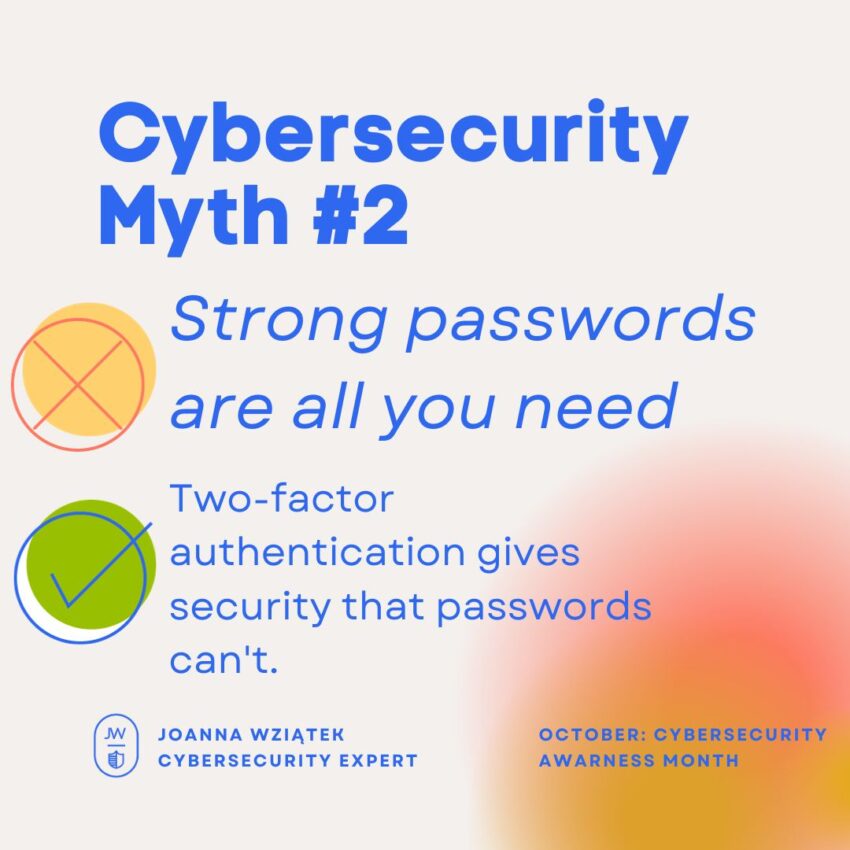Cybersecurity Myth no.2:
„Strong passwords are all you need.”
Nope. The truth is, relying solely on strong passwords for your online security is an outdated and risky practice.
Using two-factor authentication (2FA) to strengthen your digital defenses is critical. Two-factor authentication offers a superior layer of protection compared to the vulnerability of using just a password. In fact, it has become increasingly common across various websites and applications, demonstrating its effectiveness in protecting your online presence.
To enhance your account security, consider employing one of the following methods:
1. Authentication Apps: Utilize specialized authentication apps, often referred to as „authenticators.” These apps generate time-sensitive codes that serve as the second factor in the authentication process, bolstering your account’s defenses.
2. Physical Keys: Incorporate hardware-based solutions like physical keys, such as USB security tokens. These physical tokens provide an additional layer of security, as they require a physical presence to authenticate access.
❗ While it is common for many websites, including banking platforms, to offer SMS as a means of multi-factor authentication (MFA), it is essential to recognize its inherent vulnerabilities. SMS-based MFA presents several significant security risks, primarily due to its susceptibility to hacking.
One of the foremost concerns associated with SMS-based MFA is the lack of encryption. Unlike more secure methods like authentication apps or physical keys, SMS texts are transmitted without encryption, leaving them susceptible to interception by malicious actors. This vulnerability opens the door to various attack vectors, including:
🌐 Phishing Attacks: Cybercriminals can trick individuals into revealing their SMS codes through deceptive websites or fraudulent emails, thereby bypassing the second factor of authentication.
🦠 Malware Intrusion: Malicious software can infiltrate your device, compromising the security of SMS-based MFA. Once compromised, cybercriminals can intercept SMS messages containing authentication codes.
📲 SIM-Swapping Attacks: In a SIM-swapping attack, criminals convince your mobile carrier to transfer your phone number to a SIM card under their control. This allows them to receive your SMS-based authentication codes, gaining unauthorized access to your accounts.
Given these risks, it is clear that SMS-based MFA should be used sparingly, if at all. In an era of ever-increasing cyber threats, the prudent approach to online security is to adopt two-factor authentication methods that are less susceptible to manipulation and interception, such as authentication apps or physical keys.
In conclusion, while strong passwords are a vital component of cybersecurity, they are no longer sufficient in the face of evolving digital threats. Two-factor authentication, implemented through authentication apps or physical keys, offers a more robust defense mechanism against the potential vulnerabilities associated with SMS-based MFA. As technology advances, it is crucial for individuals and organizations alike to prioritize the adoption of these more secure authentication methods to protect their digital identities and sensitive information.




